This document discusses file handling in C. It covers console vs file-based input/output, defining and opening files, reading and writing to files using functions like fopen(), fclose(), getc(), putc(), fscanf(), fprintf(), getw(), putw(). It also discusses errors that can occur during file I/O and how to handle them using functions like feof(), ferror(). Random access to files using fseek() and ftell() is described. The use of command line arguments argc and argv[] is also summarized.
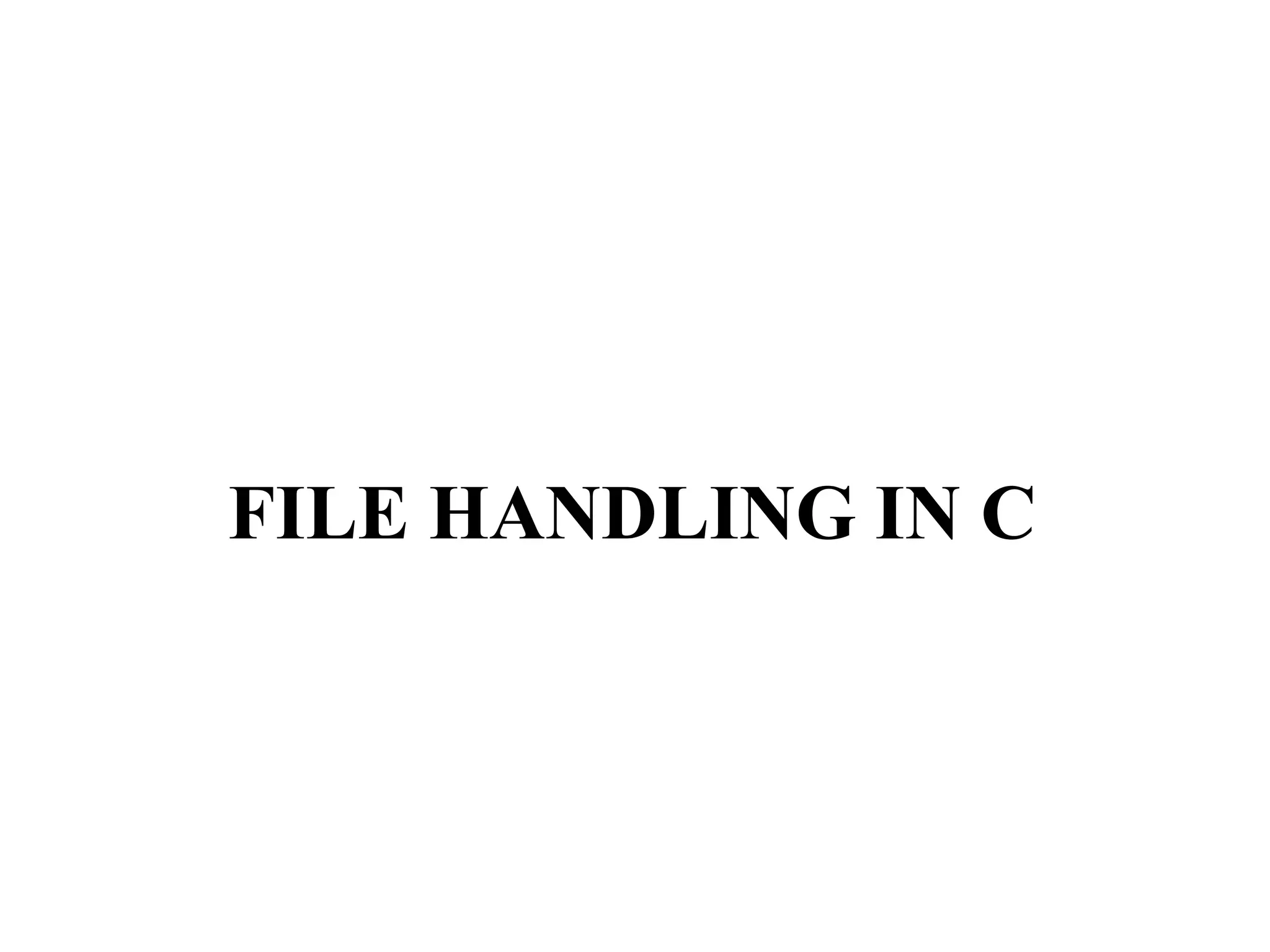
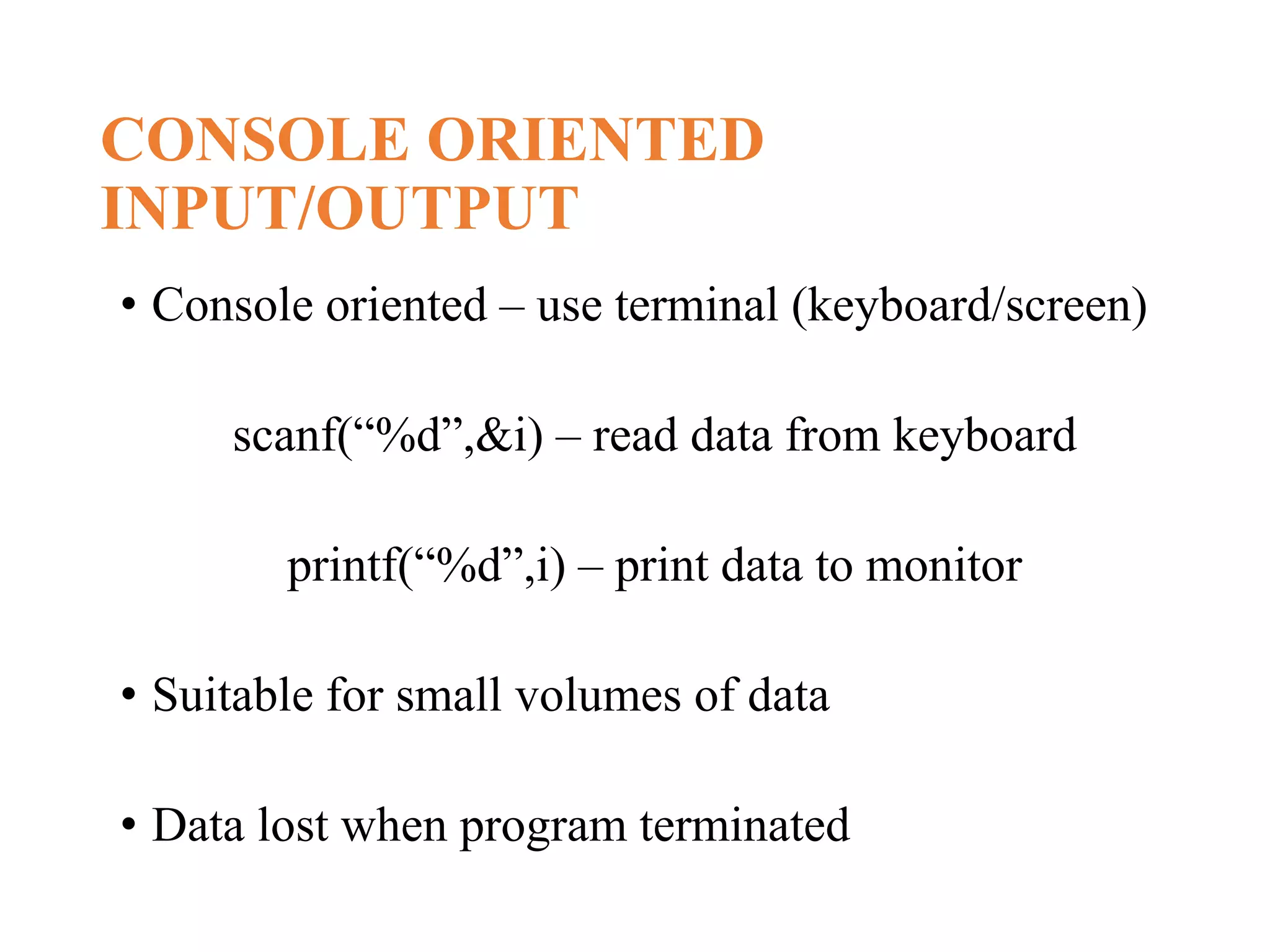
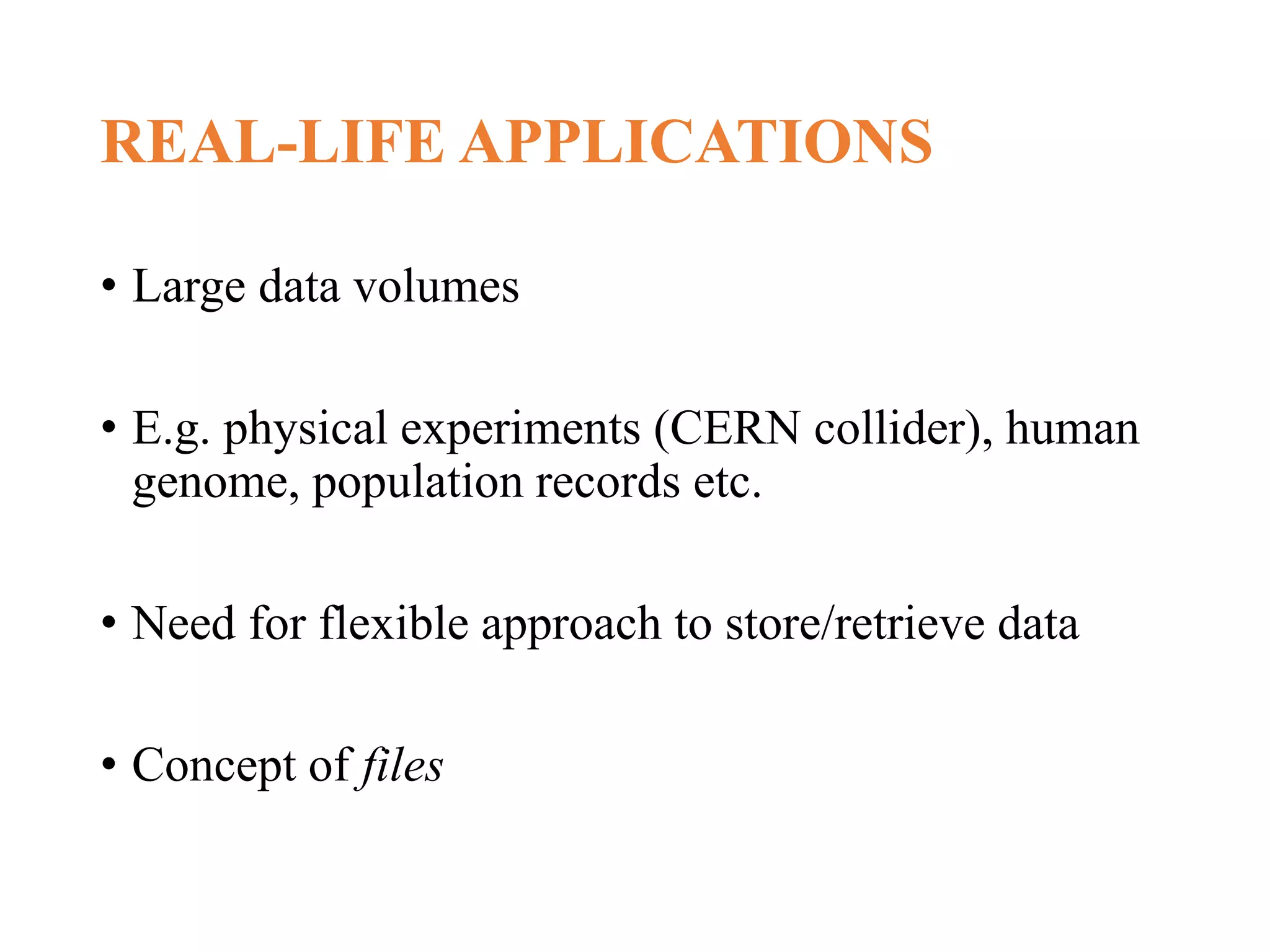
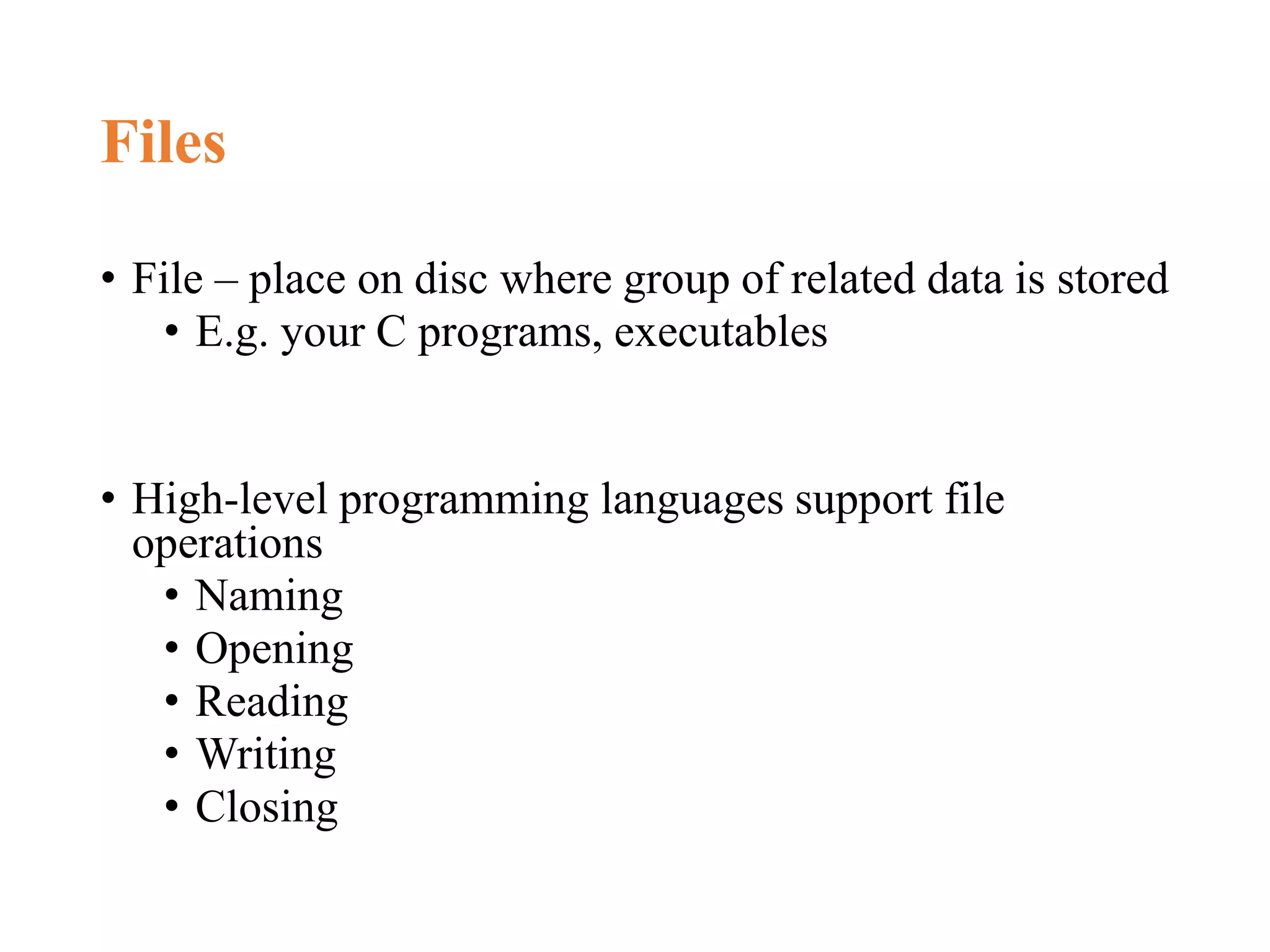
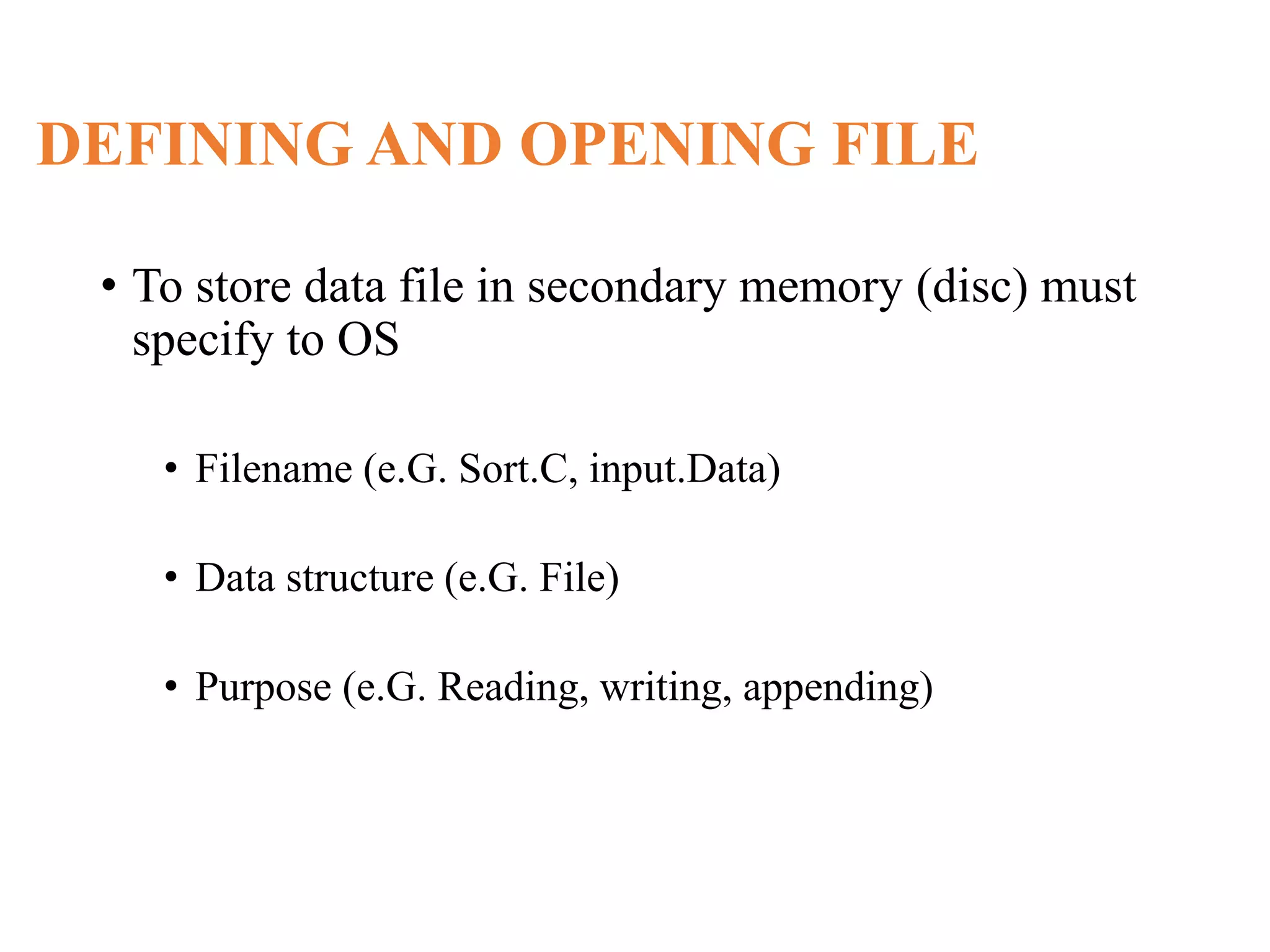
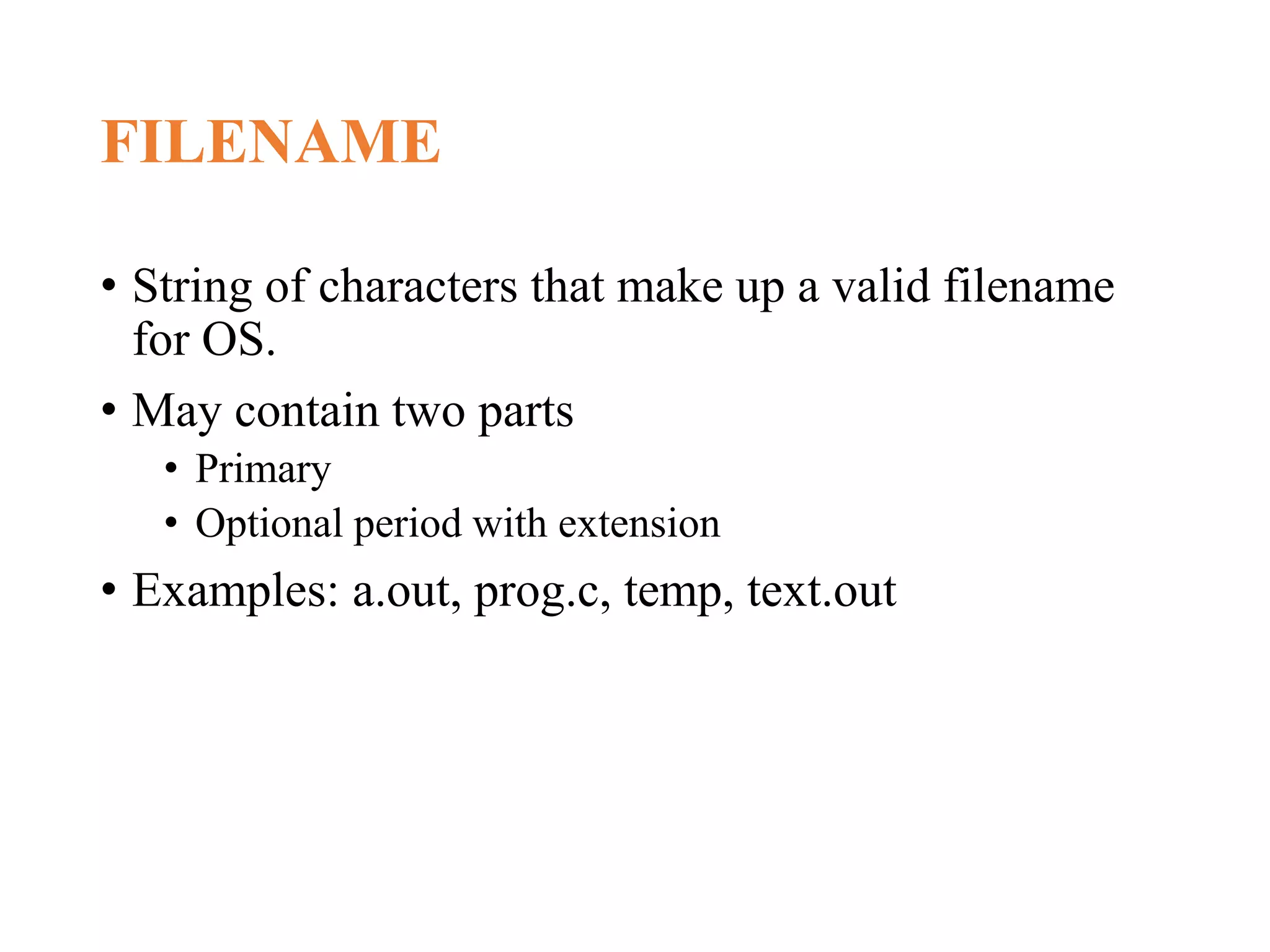
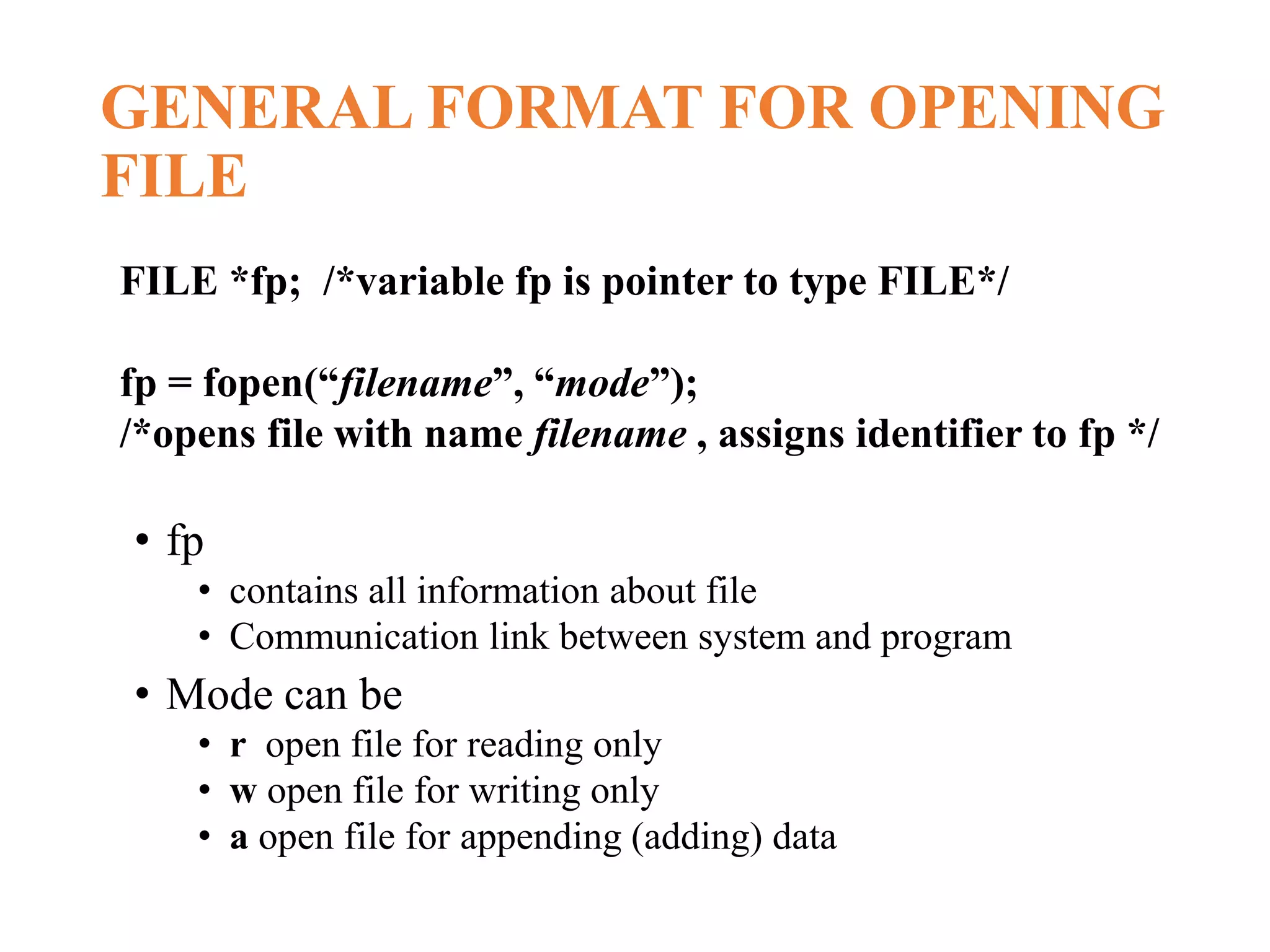
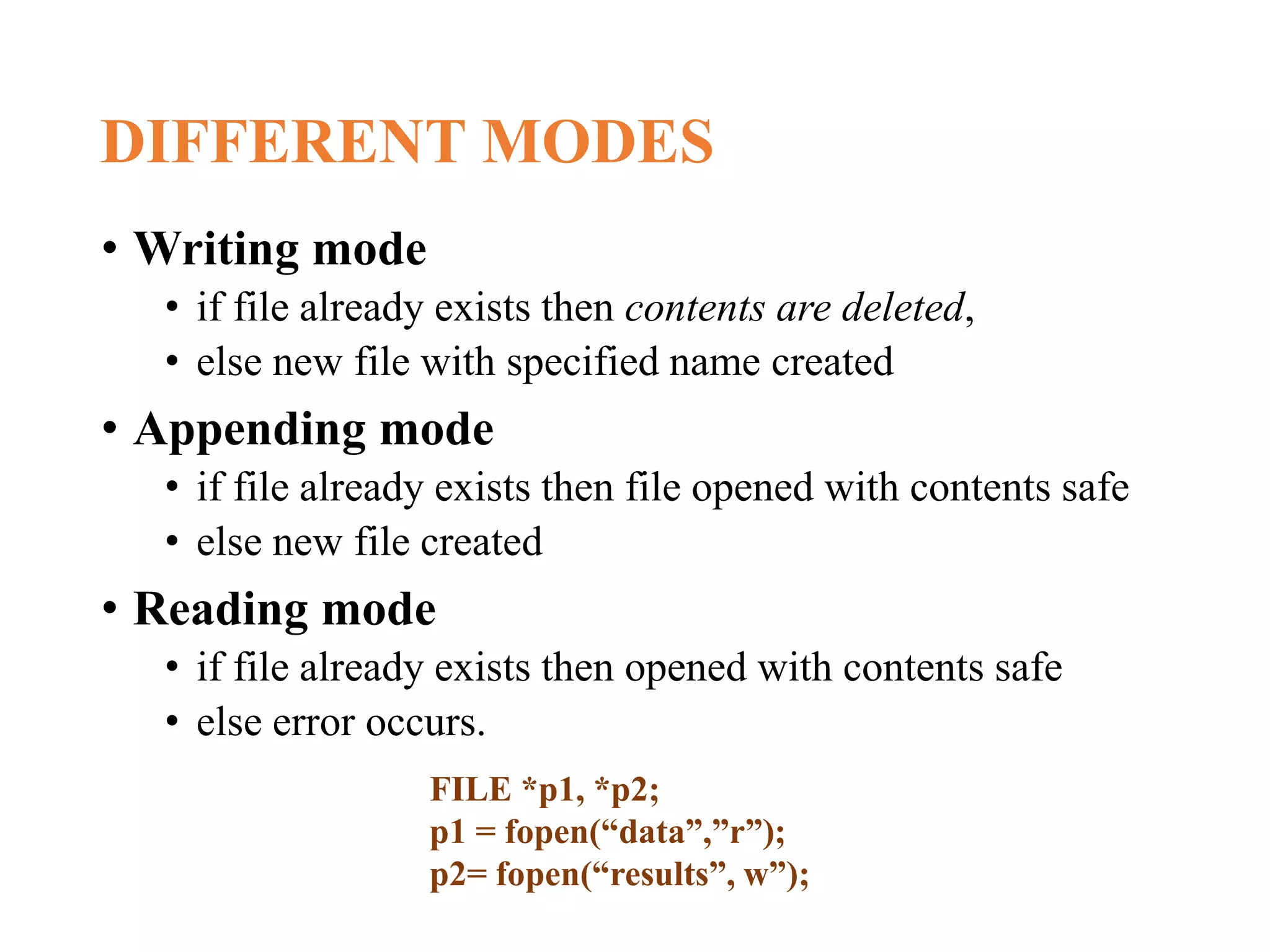
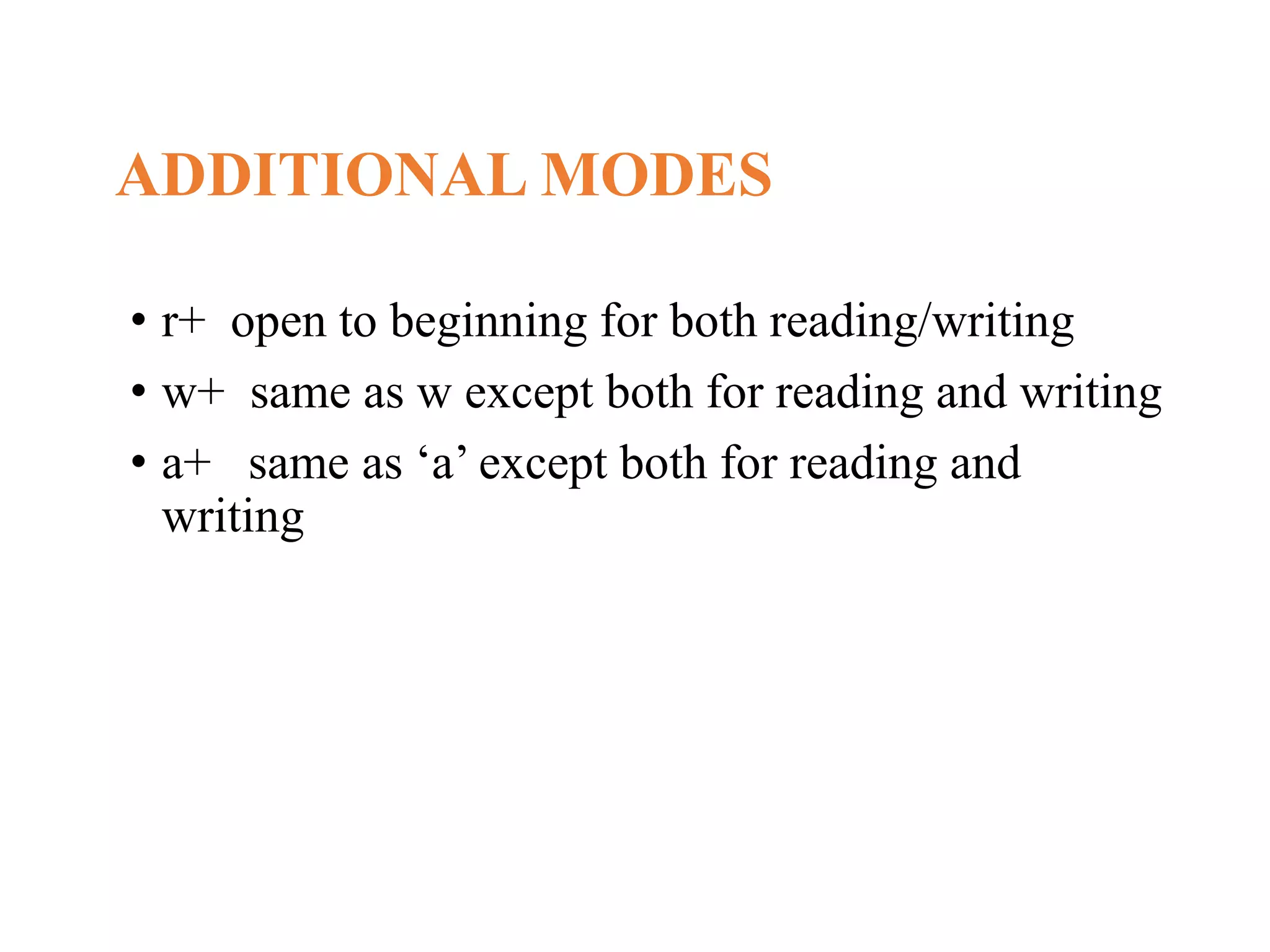
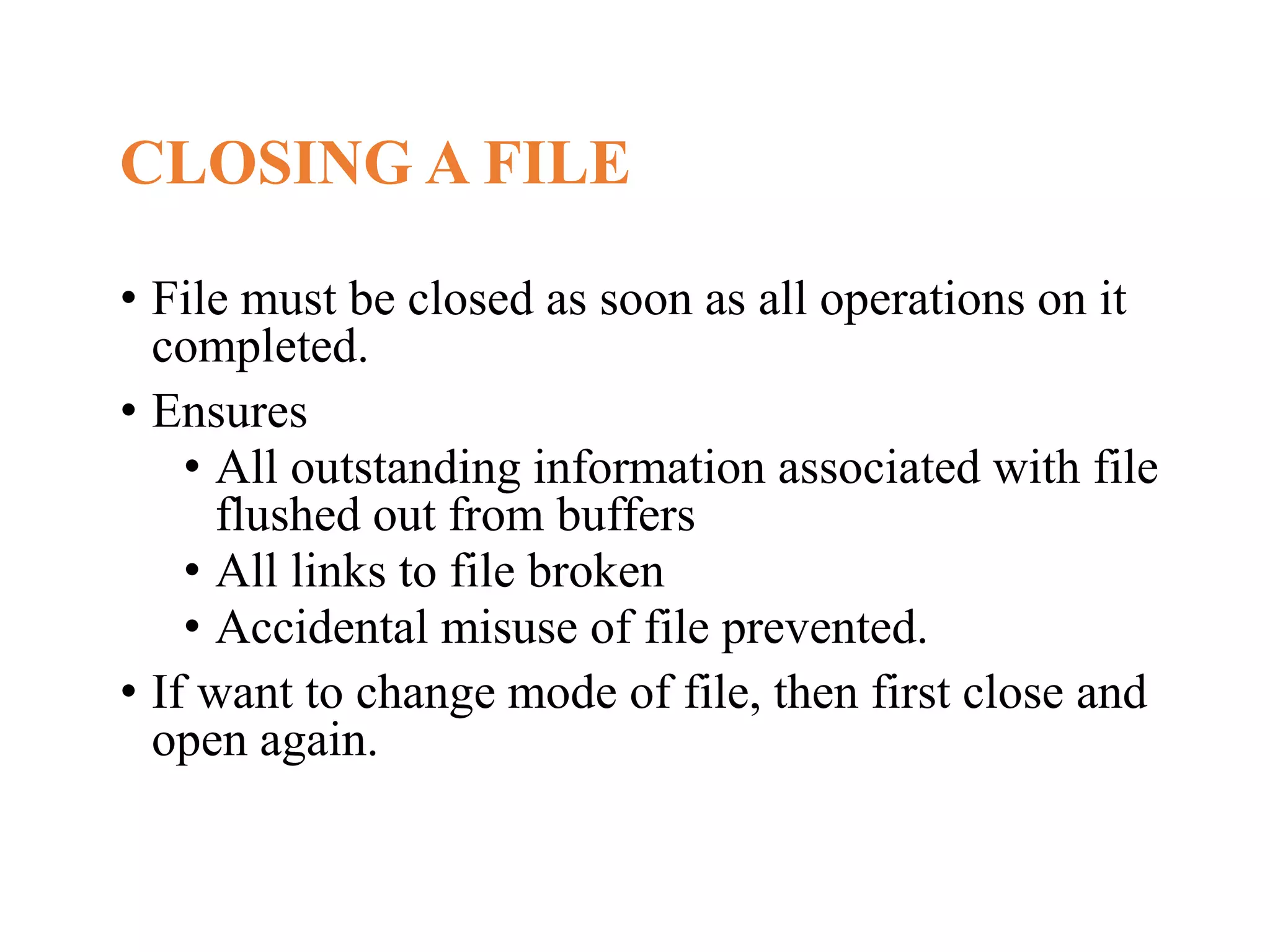
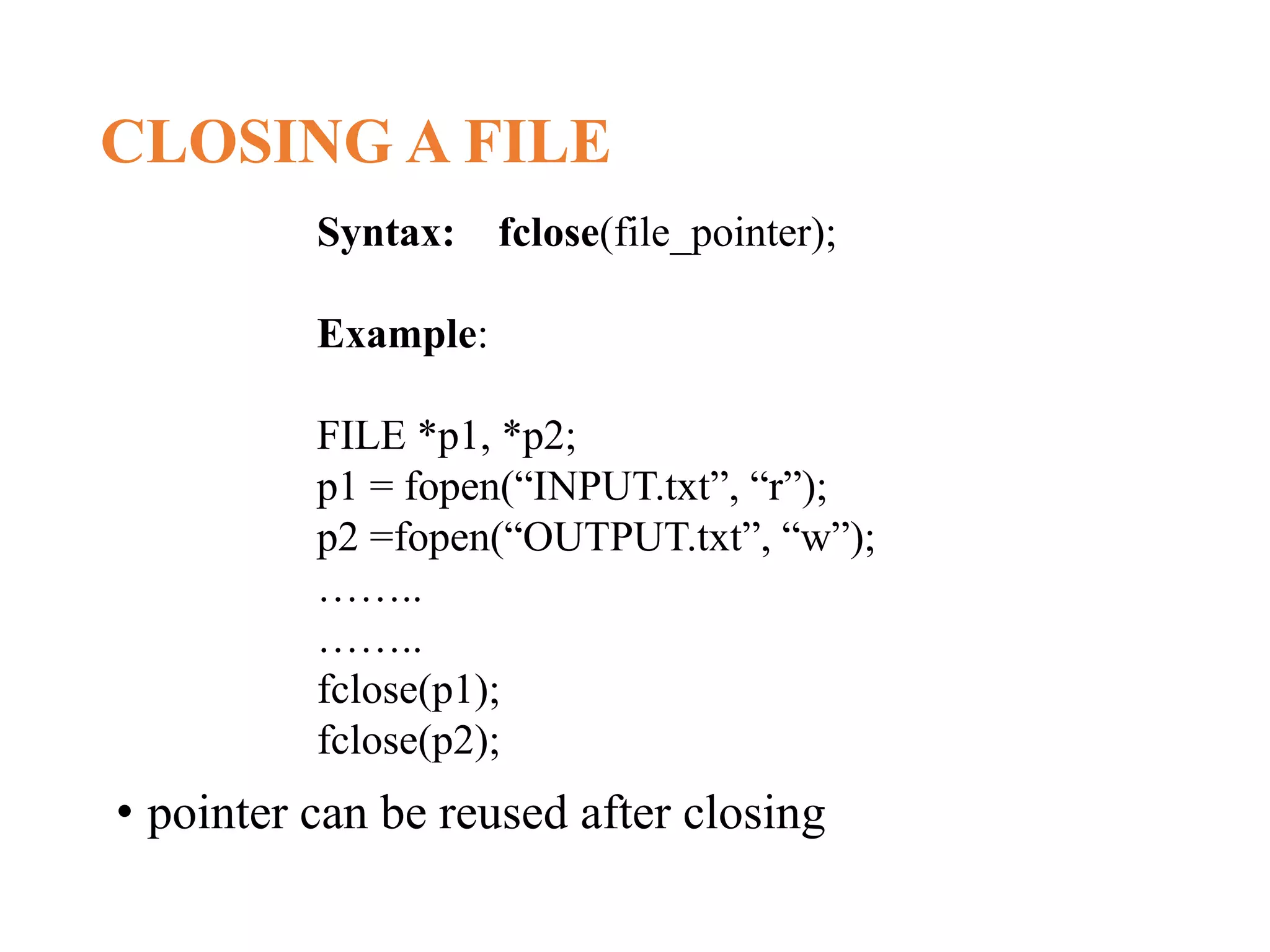
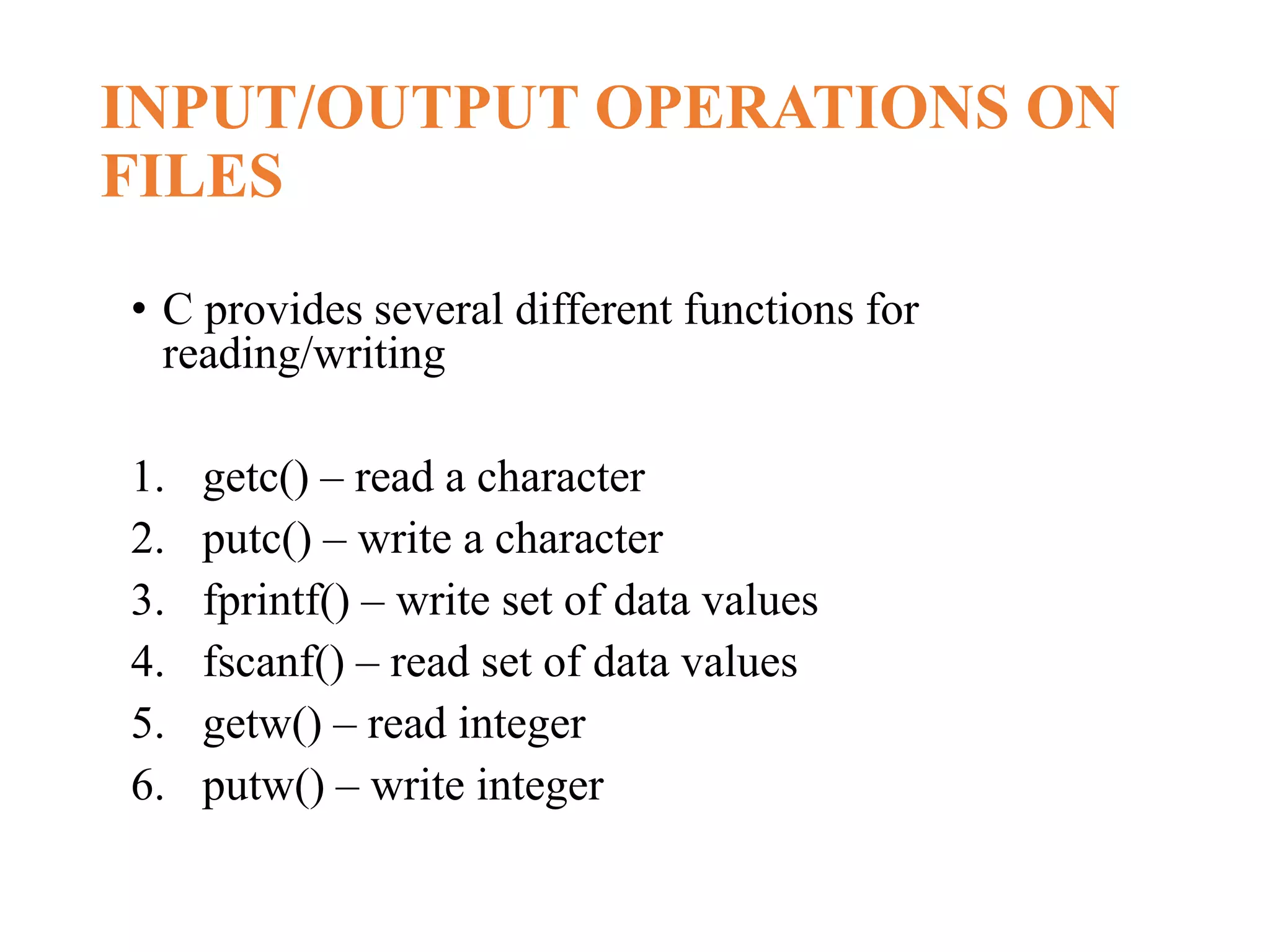
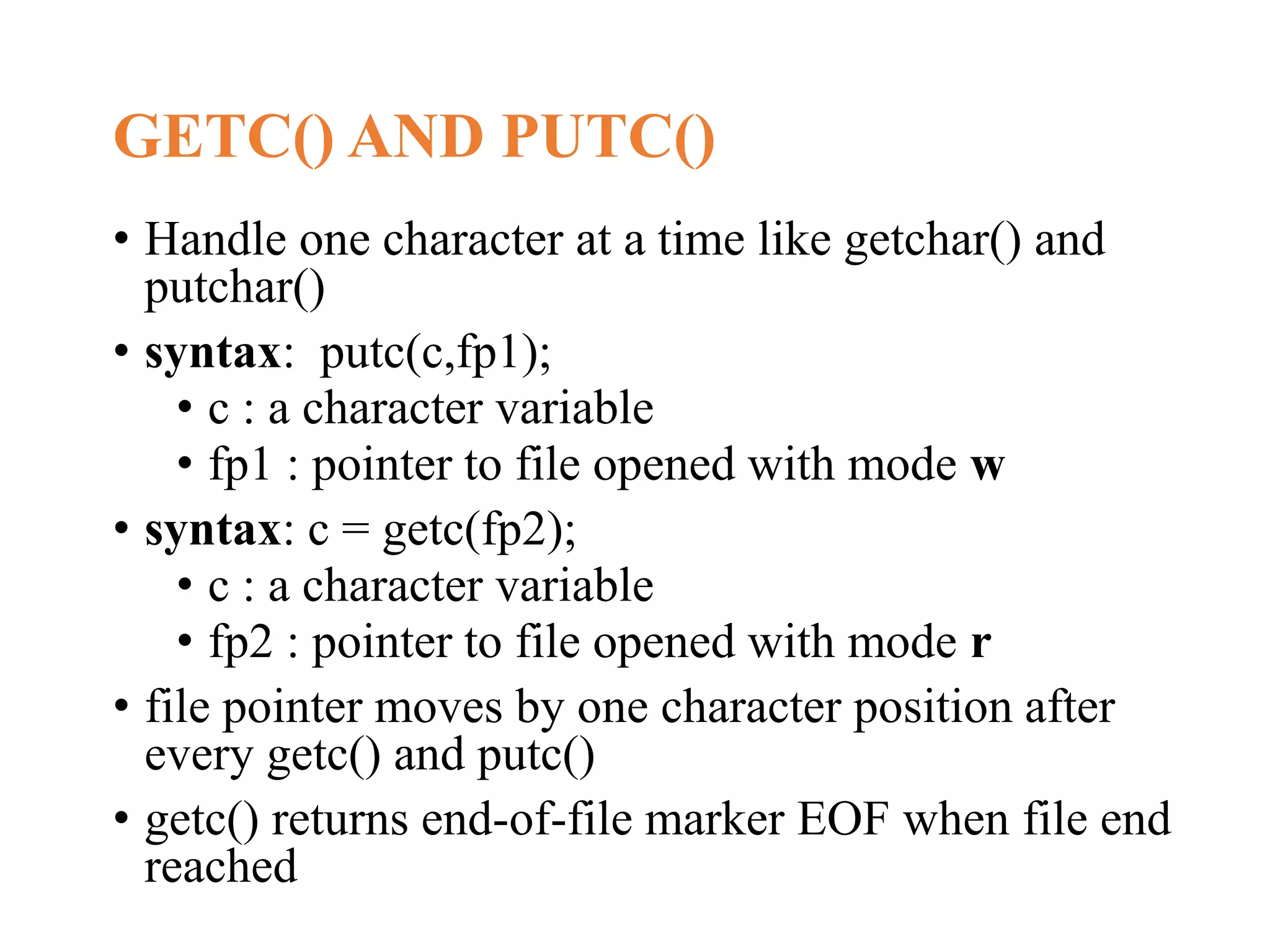
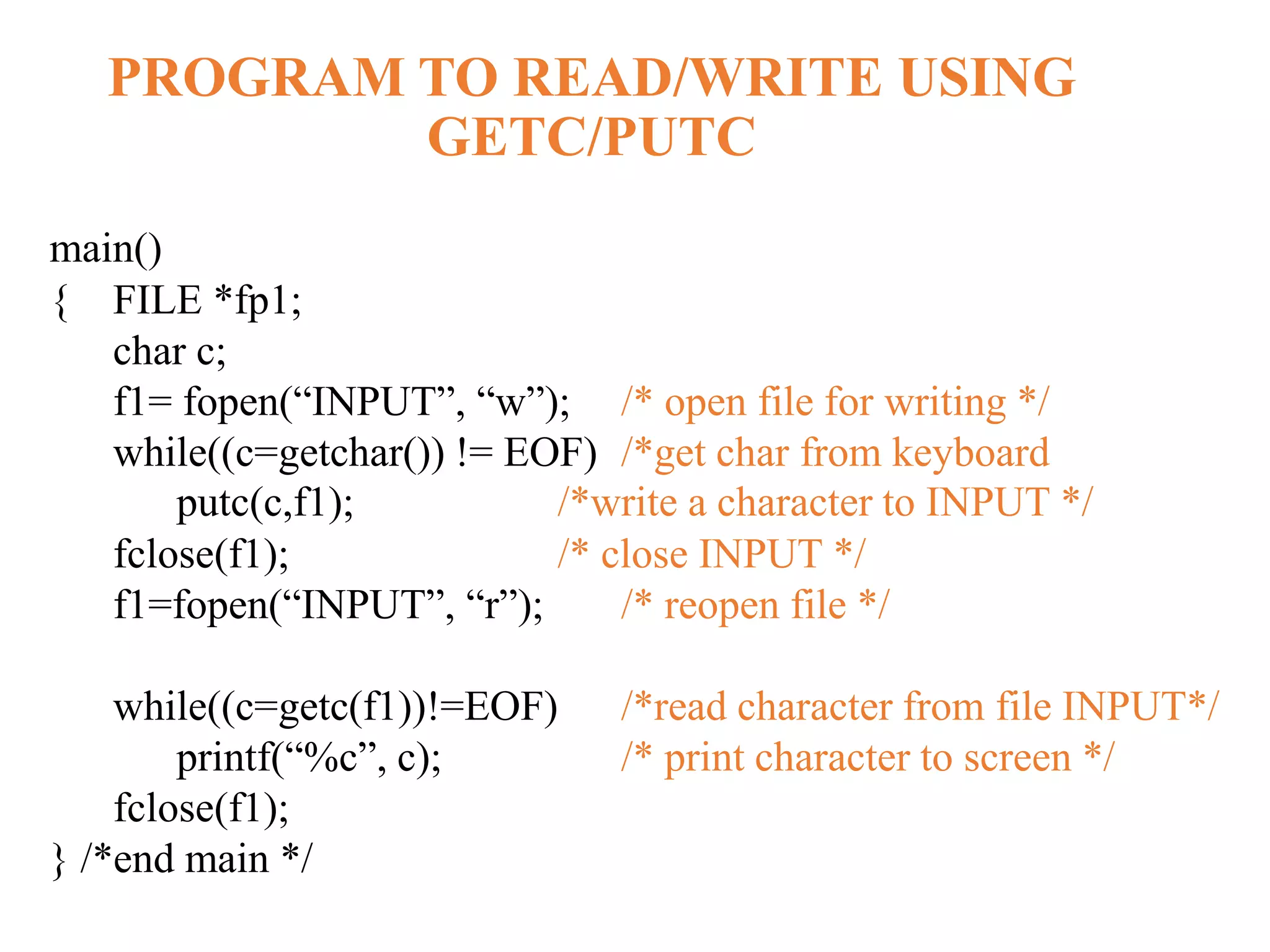
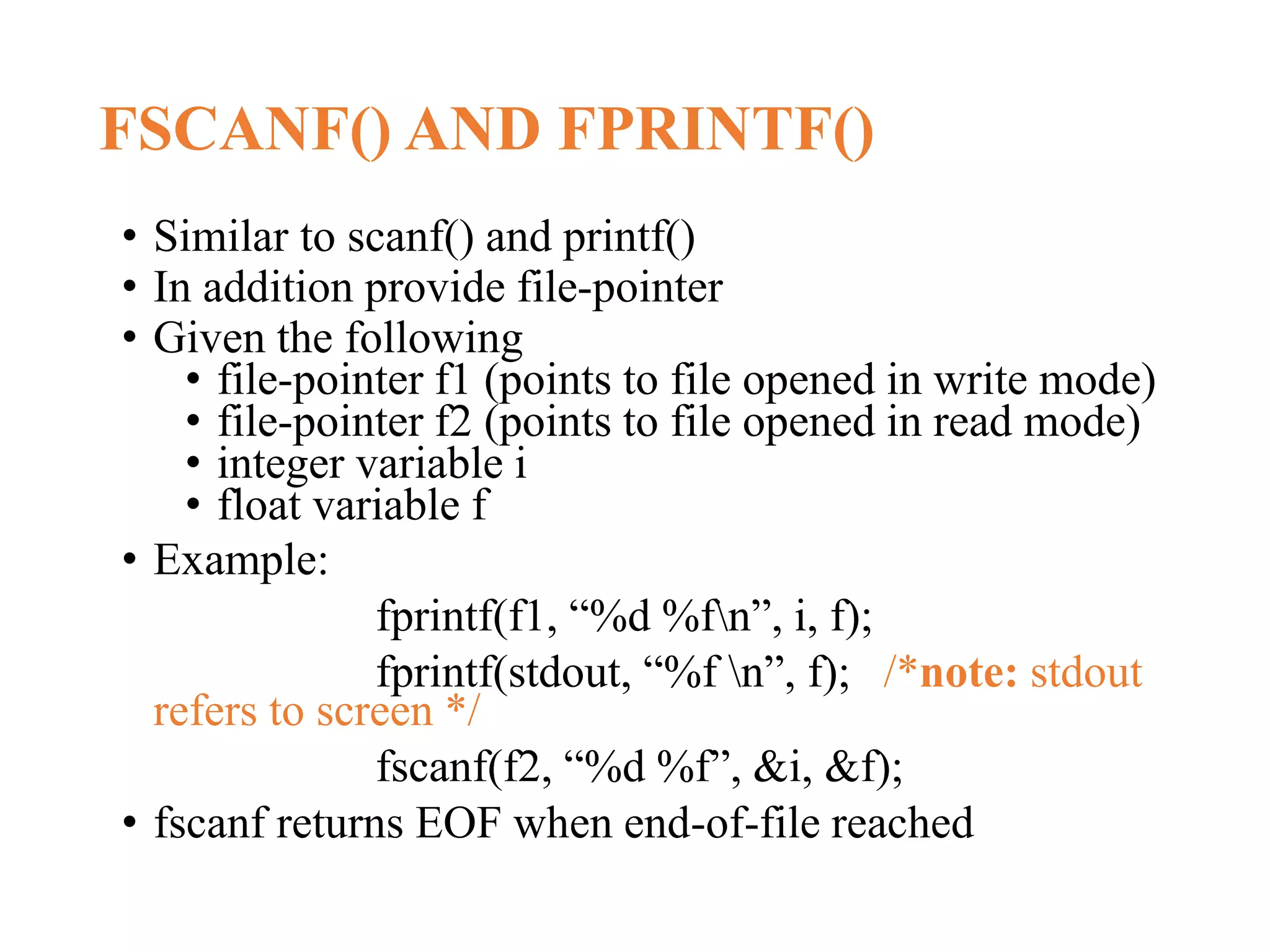
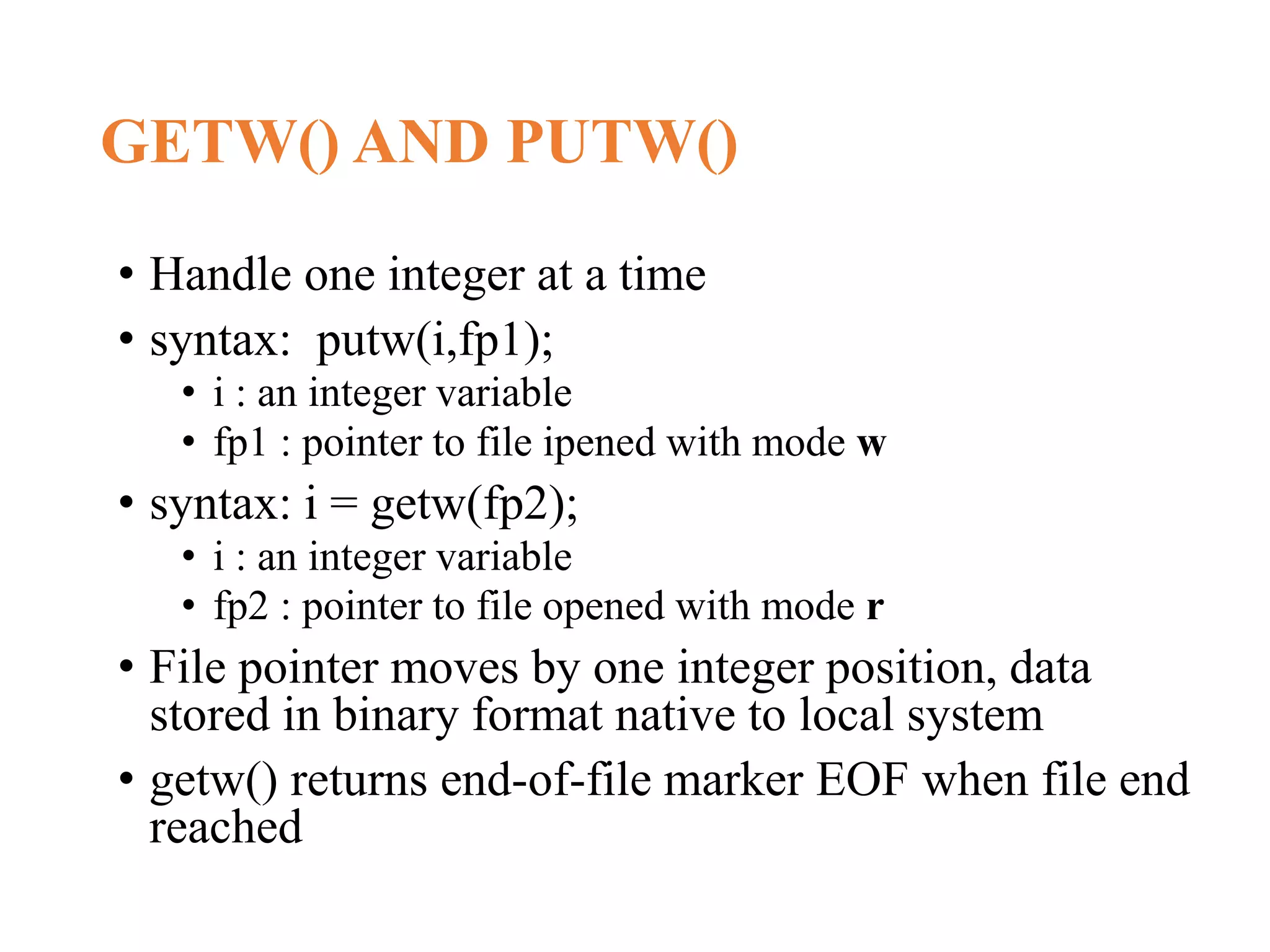
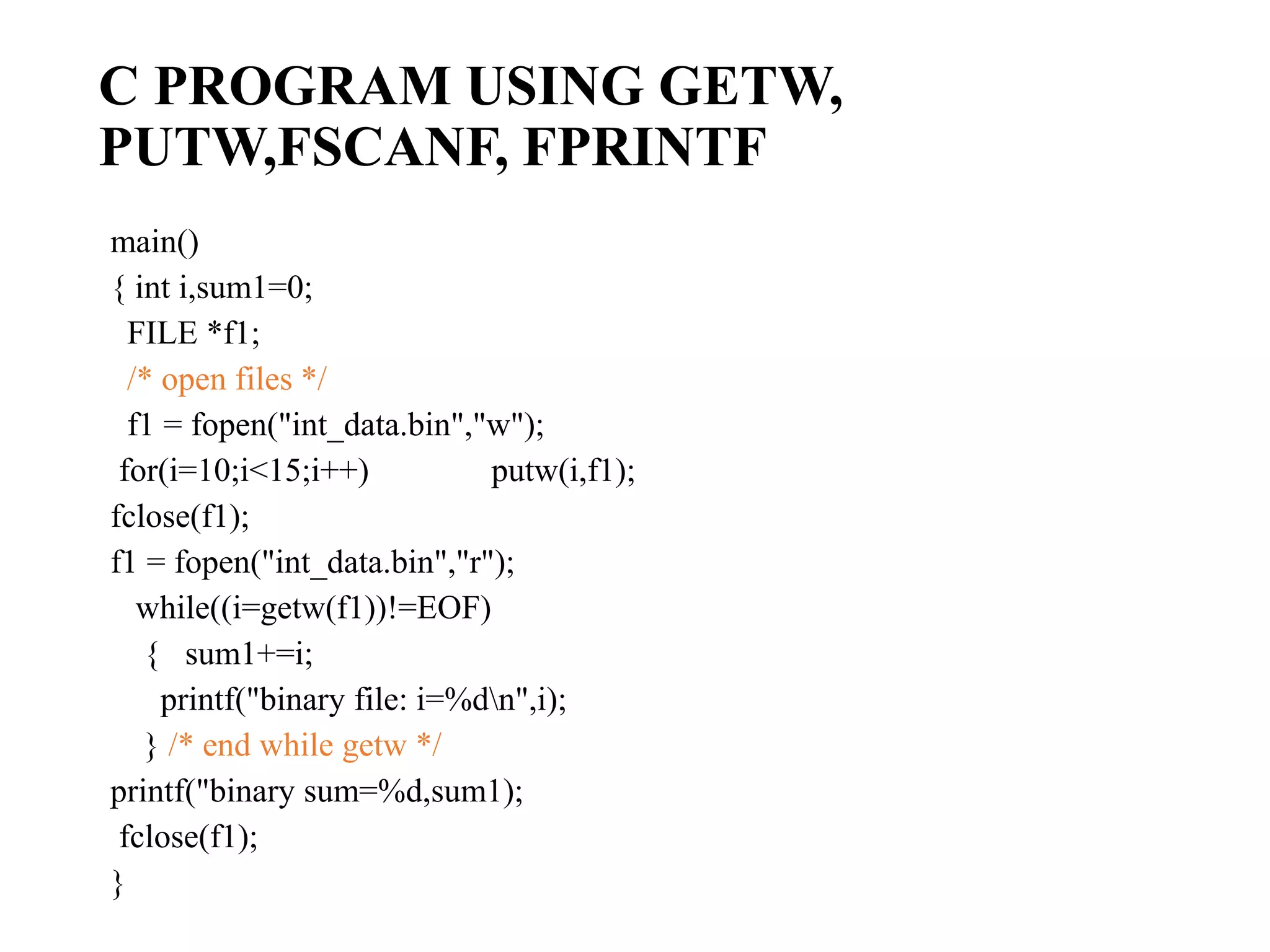
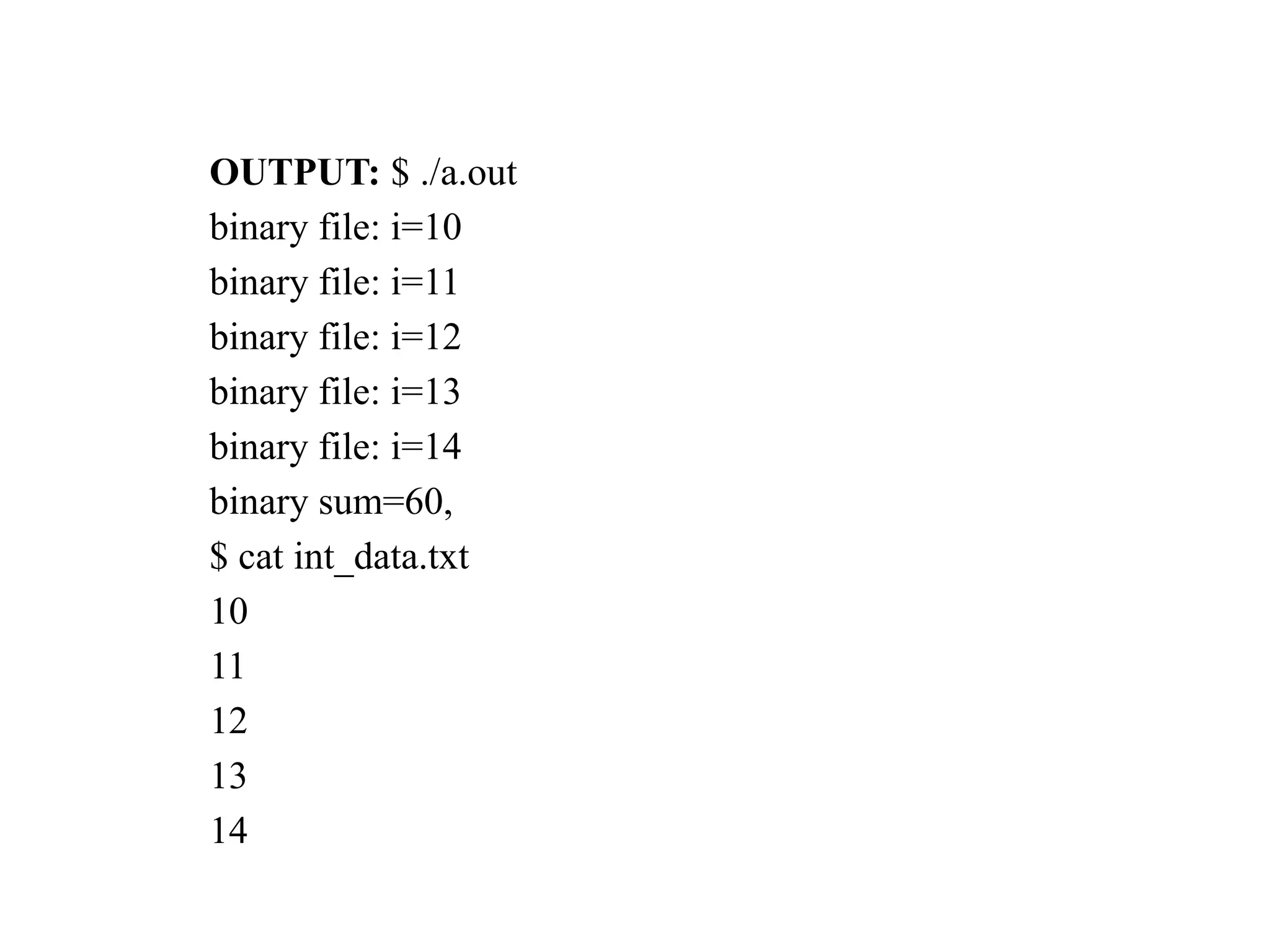
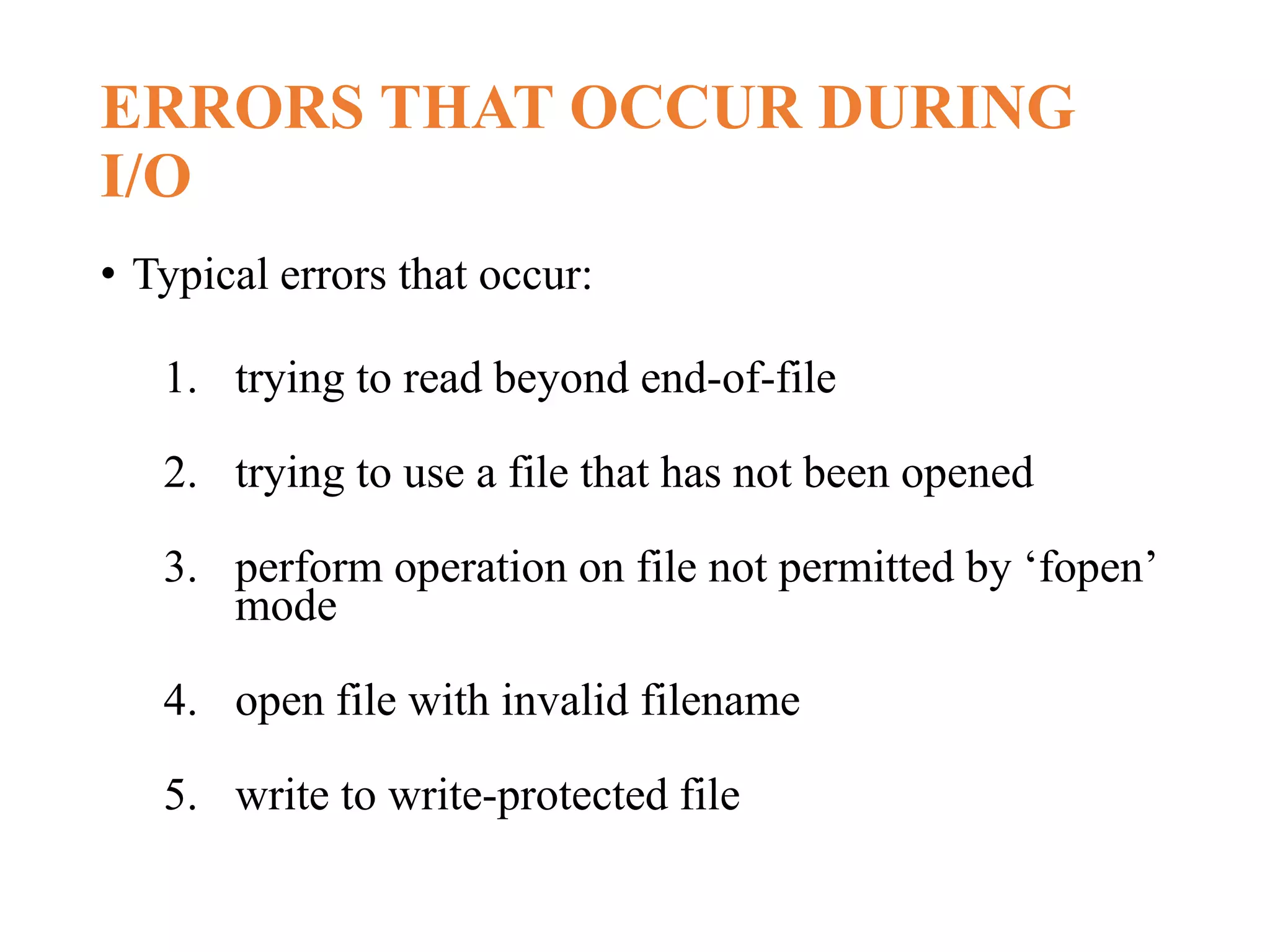
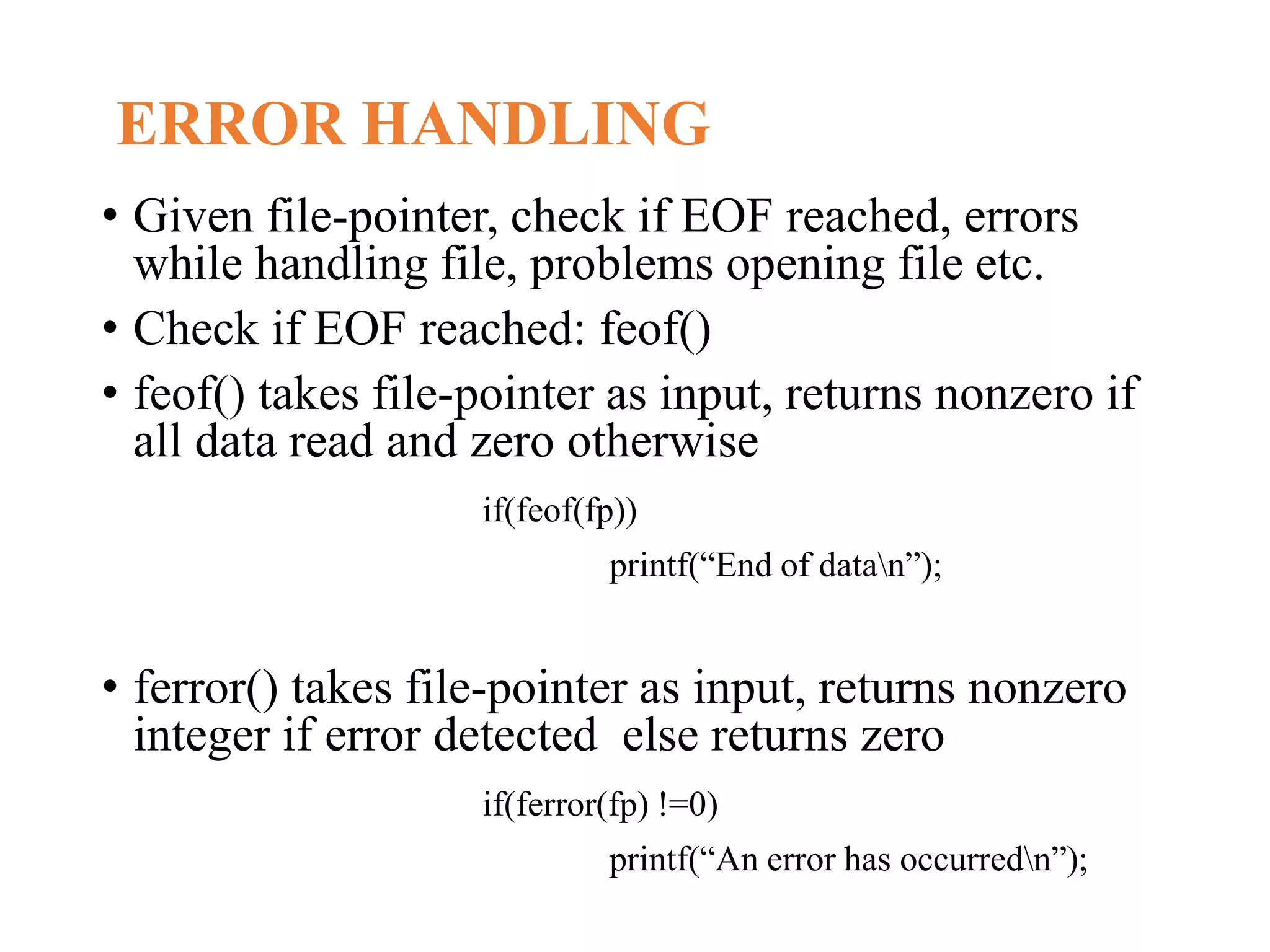
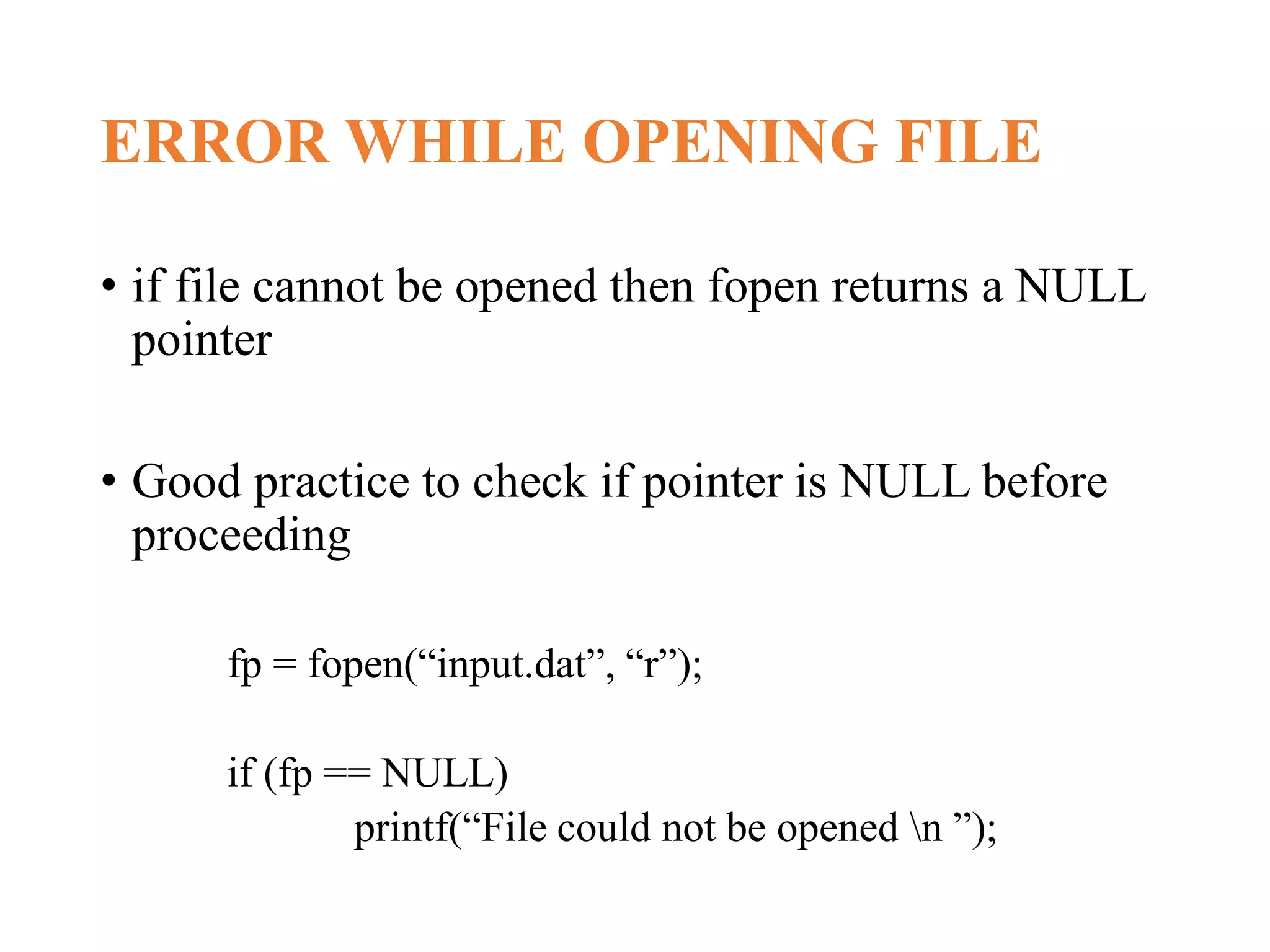
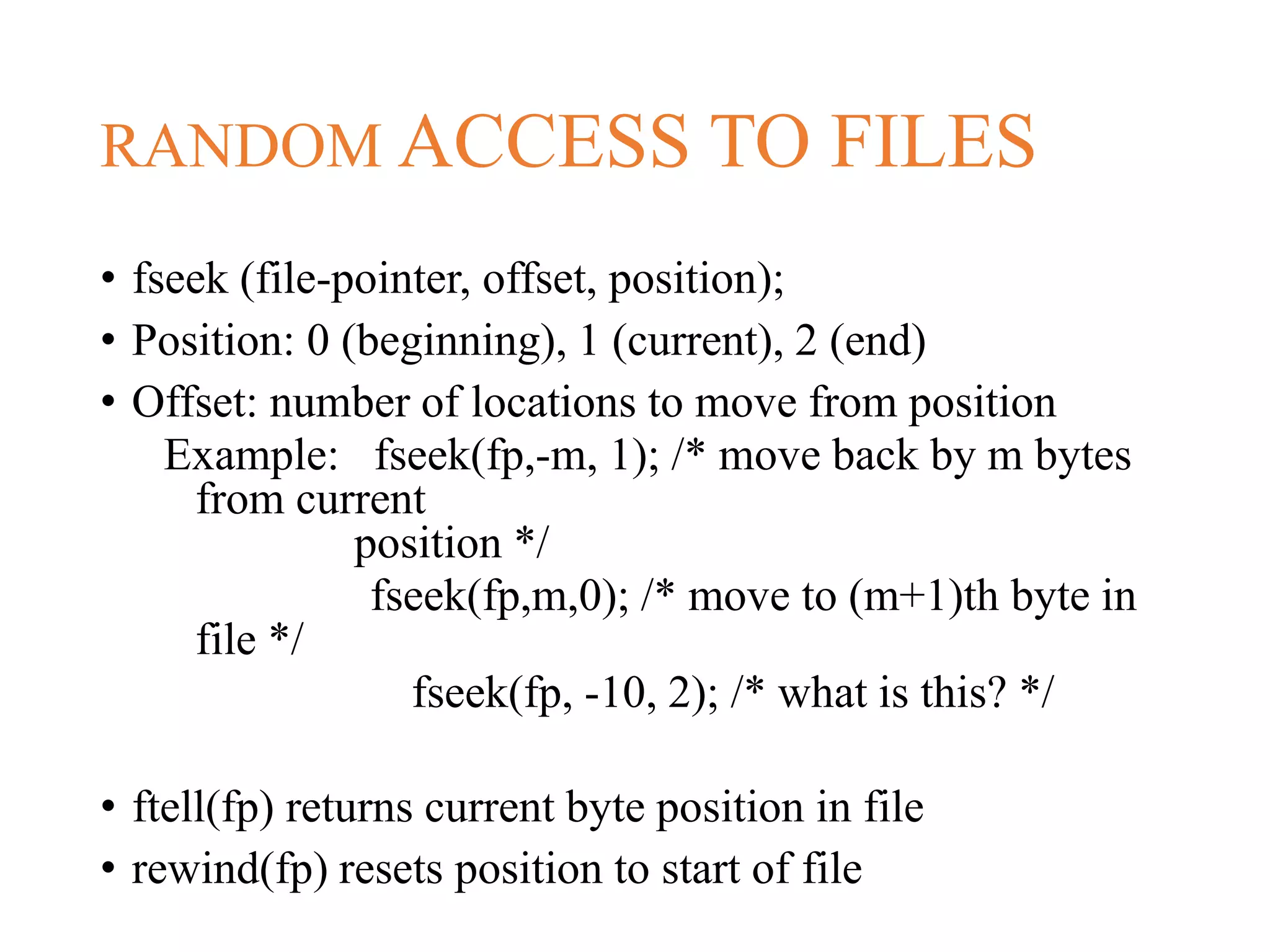
![COMMAND LINE ARGUMENTS • main ( int argc, char *argv[] ) • argc – gives a count of number of arguments (including program name) • char *argv[] defines an array of pointers to character (or array of strings) • argv[0] – program name • argv[1] to argv[argc -1] give the other arguments as strings](https://image.slidesharecdn.com/c-programmingfile-handling-c-220825095024-da00e609/75/C-Programming-File-handling-C-pptx-23-2048.jpg)